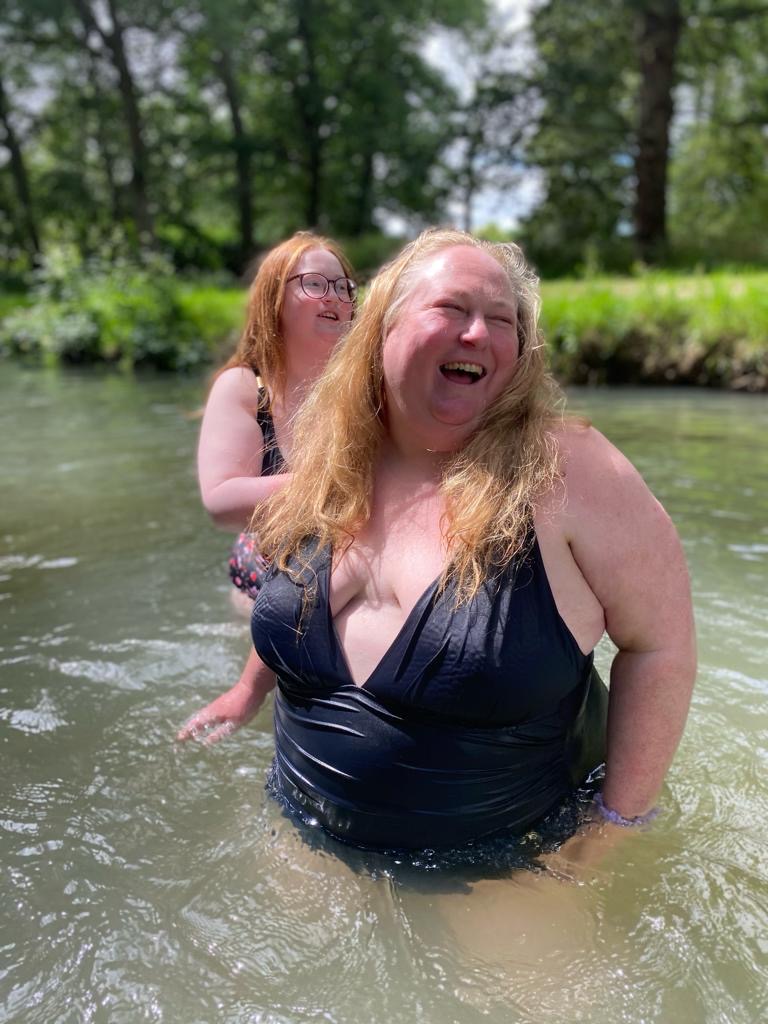FAQs
Frequently Asked Questions
Answer: Not particularly, but you must have no serious underlying health issues which will make it dangerous for you to participate in these sessions. Don’t worry if you are unsure as all participants will undergo medical screening. For some of our beach locations you will need to be able to walk approx. 1 mile unaided due to the distance to the water at low tide.
Answer:
- It is important to note that the point of the sessions is to increase your confidence and learn how to be safe in cold water rather than being an advanced swimming course.
- For the outdoor pool courses you do not require any swimming experience because you will be able to put your feet down on the floor at all times
- For the courses in lakes and the sea, you have to be able to swim 2 lengths of a 25m pool unaided.
Answer:
The swim courses are designed for beginners and will be introductory. They will support participants to get into cold water and learn about the safety and hazards of swimming at that location. They will have different activities based on the location, the group, and the swimming ability required at that site.
However, being an experienced swimmer or already familiar with outdoor swimming does not exclude you from participating. You might still benefit from the swim course in various ways, such as the opportunity to swim with others or to build more confidence in outdoor swimming within a supported environment.
Answer: Very little. Warm clothes, a waterproof jacket & towelling robe or a waterproof changing robe, goggles (not essential), a swimsuit and a bag or bucket for your clothes – don’t bring valuables. In the colder months we may also require you to bring a warm drink, woolly hat and even a hot water bottle to help you warm up after the session. Your session leader will send you details specific to your session and location. (Link to locations)
Answer: Absolutely not. Just a towel and plenty of warm dry clothes. We do recommend that you use clothes with few or no buttons as they are easier and quicker to get off and on thereby minimising the time you spend exposed to the cold air at the start and end of your session in the water.
Answer: Each session will take about 1 hour, with between approx. 10 to 35 minutes in the water depending on the temperature, conditions and how acclimatised the group has become.
Answer: No more than 10 people
Answer: There is no need to talk about your mental health at any of the swimming sessions.
Answer: Yes, you can swim when you are on your period and it may even relieve cramping. You may want to use period products such as tampons, menstrual cups or period swimwear.
Answer: There is no need to get in the water if you don’t feel like it – you should do what you feel is best for your mental and physical health
Answer: Yes, it is possible to reclaim travel expenses to and from the swim site, and these reimbursements will be available upon receipt. We will request that participants keep any proof of payment and receipts for bus or train travel expenses. Mileage allowance is 45p per mile, and parking costs can be claimed as long as all your receipts are kept.
Please be aware that we will reimburse participants as soon as possible, however, the processing of these reimbursements can take some time and payments may only be available once your swim course has finished.
Please refer to out ‘locations page’ to find your nearest swim site or contact us if you have any further questions.
Answer: Yes, you will have been taught many of the skills necessary to swim safely and will be put in touch with others from the course and also other swim groups. In the previous courses we have run, we have found that most people continue to swim after it has finished
Answer: To have a significant effect it only needs to be less than 20˚C which is warmest temperature found in most outdoor swim spots in the UK. Although during the course it is likely to vary between around 10-20˚C
Answer: The amount of sewage being discharged into outdoor water has recently come to light, and is now often in the news. Whilst it is important that water companies make the necessary changes to protect our water ways, it can still be safe to swim. All our swim coaches are familiar with the water quality of the places they are running courses. They will be checking in with the apps or authorities that monitor the cleanliness of the water before each session, and if it is not safe to swim then they will try to rebook or suggest an alternative venue.
Answer: A study design that randomly assigns participants into the intervention group or a control group. As the study is conducted, the only expected difference between the control and experimental groups in a randomized controlled trial (RCT) is the outcome variable being studied.
Answer: This group is vitally important to the scientific validity of the study. The mental health of this group is also monitored but they simply continue with whatever interventions they would have otherwise undertaken. Without this group, it is impossible to say whether any observed effects are directly due to the intervention or would have just happened anyway.
Answer: OUTSIDE 1 was a previous study the team completed. This was a feasibility study to see if it would be possible to run the randomised controlled trial. For further information about this previous study please click here.
Answer: No, not unless you are told to by your doctor.
Answer: As this is a Randomised Control Trial (RCT), half of the participants will be assigned to the Intervention group, which will participate in the swim course, while the other half will be assigned to the Control group.
However, we recognise that some participants in the control group may already be engaging in outdoor swimming to support their mental health. Therefore, the study is designed to account for ‘swimming’ activities performed outside of the swim course, as part of any other ‘usual care,’ which both the control group and the swim group can continue to access during the study.
Please see our additional FAQs for more information about RCTs.
Answer: Analysing your diaries also gives us the chance to understand the experience of outdoor swimming from the participant perspective. Your answers will also help us to start to find out what aspects of outdoor swimming can be beneficial for mental health. Some of the participants of an earlier study also told us that they would have liked to have a record of their experience of attending the course, and so we will send you a copy of your diary at the end.
You can also have a copy of each entry at the time of writing them. However, for us to send it to you, we will need you to add your email address when you submit their diary entry.
Answer: The diaries are for you to describe in your own words how you have found the swim course sessions and anything you have noticed as a result of participating. This might include any concerns you had about attending, any difficulties getting to the location, how you found being part of a group, what it was like being in the water, any changes you noticed in your mood or body, or how you felt afterwards. It can really just include anything about the experience that you felt was interesting or important and that you would like to share with us.
Answer: We are not interested in how the diary is written, just what you have to say. Please do not worry about getting spelling, grammar, punctuation etc. correct. We just want to hear about your experience in your words.
Answer: The diaries are optional, you can be in the study without completing one. However, the information you share will be really helpful in developing our understanding of outdoor swimming and how it might impact on mental health.
.
Answer: Please contact us if you have any questions or concerns about completing the diary. You can email on spnt.medics.outside@nhs.net and a member of the team will get back to you.
Answer: If you prefer to speak rather than type, you can use the voice dictation option on your smartphone by tapping the microphone icon that appears on your keyboard
Answer: You can add an additional entry whenever you want to. Please just click on the link, enter your participant ID and then add any further thoughts you have into the box.
Answer: We are really interested to understand the reasons why people do not attend sessions, what it felt like to not go and whether it had an impact on their experience of the course as a whole. So, if you are able to share with us any reflections about not attending then that would be helpful for us.
Answer: All the diary entries will have your anonymised participant number and so the researchers doing the analysis won’t know who wrote each entry. When we analyse the diaries, we will combine entries from different participants. This means that any quotes we use to explain the experience, in articles or presentations, won’t be identifiable.
We will send you a copy of your completed diary after the course has finished. However, if you want a copy of each diary entry at the time of writing, then you will need to add your email address when you submit your diary entry.
Answer: It will take us a little while to collate all the diaries and send out to the participants. However, if it has been over two months please do contact us on spnt.medics.outside@nhs.net
Answer: Research studies have strict criteria to say who can and can’t participate. These guidelines are called eligibility criteria, and we cannot deviate from these. Therefore, for those who don’t meet the criteria, it is understandable that you may feel disappointed. This isn’t to say you aren’t unwell or
not depressed, it’s just you don’t meet the current study criteria. We will always try and signpost you to other options..
Answer: Participation in the swim sessions would be the equivalent of attending a medical appointment for treating depression. These sessions can be treated the same as any medical appointment or treatment for a mental or physical health condition needing regular treatment. e.g. An NHS Talking Therapies treatment session.
Answer: Inflammation results from the release of a number of different chemicals by the cells of the immune system. It is a normal, short-term healing response to tissue damage where it leads to swelling and redness; and to infection where it leads to fever and malaise.
However, if significant quantities of these chemicals are present over a long period of time – usually as a result of stress or autoimmune disease – it can have negative effects including depression, skin conditions such as eczema and psoriasis, thickening of the blood vessels which can result in high blood pressure and heart disease, arthritis and inflammatory bowel disease.


